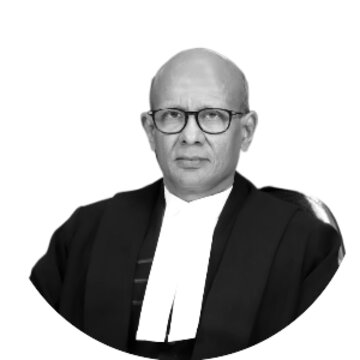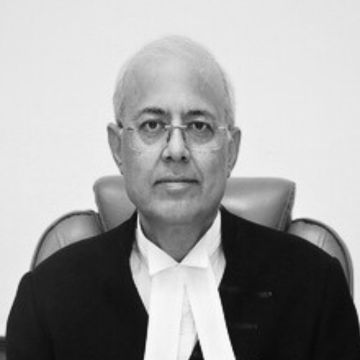Validity of judicial challenges to MSEFC awards
Tamil Nadu Cements Corporation Limited v Micro and Small Enterprises Facilitation Council and Anr
The Supreme Court will decide whether writ petitions against orders of the Micro and Small Enterprises Facilitation Council are maintainable
Pending
Parties
Petitioner: Tamil Nadu Cements Corporation Limited
Lawyers: K. Radhakrishnan, Sr. Adv; K.V. Jagdishvaran, Adv; G. Indira, AOR; P. Gandepan, Adv; Ashwini Kumar, Adv
Respondents: Micro and Small Enterprises Facilitation Council; M/S Unicon Engineers, Represented by its Managing Partner P. Ponram
Lawyers: Senthil Jagadeesan, Sr. Adv; E. Om Prakash, Sr. Adv; Kaushitaki Sharma, Adv; Hima Bhardwaj, Adv; Mrinal Kanwar, AOR; Vaibhav, Adv; Puneet Agarwal, Adv
Case Details
Case Number: Special Leave Petition (Civil) No. 002379 - /2025
Next Hearing:
Last Updated: February 13, 2025
Key Issues
Whether the Supreme Court’s decision in India Glycols Limited v MSEFC, Medchal—Malkajgiri (2023) bars writ petitions against orders of the MSEFC
If the bar is not absolute, under what circumstances can a writ petition be entertained, when an alternative remedy exists
Whether MSEFC members who facilitate conciliation can serve as arbitrators under Sec. 18 of the MSMED Act, despite restrictions under Sec. 80 of the Arbitration Act?
Case Description
In 2010, Tamil Nadu Cements Corporation Limited (TANCEM) awarded a contract to M/s Unicon Engineers for the design, supply, and installation of two Electrostatic Precipitators (ESPs) at the Unicon Engineers’ Ariyalur cement unit. The contract was valued at ₹7,50,60,643 and was governed under the provisions of Tamil Nadu Transparency in Tenders Act, 1998 and the Tamil Nadu Transparency in Tenders Rules, 2000.
Unicon Engineers failed to complete the project as per the agreed terms. Between May 2012 and November 2013, several warning letters were issued by TANCEM to Unicon Engineers regarding the stipulated deadline, delay in execution of civil works and the substandard quality of work.
On 17 January 2014, Unicon Engineers filed a claim under Section 18 of the Micro, Small, and Medium Enterprises Development Act, 2006 (MSMED Act) seeking ₹2,66,80,157 from TANCEM as pending payments, and cost overruns. It also sought interest on this amount. According to the MSMED Act, in case of disputes concerning micro and small enterprises, parties must first attempt conciliation before they proceed to arbitration. Three days later, the Micro and Small Enterprises Facilitation Council (MSEFC) sought TANCEM’s response to Unicon Engineers’ claim.
The same month, TANCEM engaged another contractor to modify the installations at an additional cost. It cited performance issues with the ESPs of Unicon Engineers.TANCEM sought an amicable settlement and simultaneously pressed Unicon Engineers to rectify the defective ESPs. But conciliation failed.
On 4 June 2016, MSEFC permitted Unicon Engineers to pursue arbitration. Sections 15 and 16 of the MSMED Act were quoted to issue directions to TANCEM to pay ₹39,66,144 along with interest. According to Section 15, a buyer must pay an MSME supplier within the agreed period, which cannot exceed 45 days. Section 16 states that if the buyer delays payment, they must pay compounded interest at three times the RBI’s bank rate.
TANCEM filed a petition asking for the MSEFC’s award favoring Unicon Engineers to be set aside. Unicon Engineers countered that TANCEM’s petition was filed after the time allotted for such petitions. It also lacked the mandatory 75% pre-deposit requirement under Section 19 of the MSMED Act. Section 19 states that courts cannot entertain an appeal against an arbitral award or decree unless the appellant (excluding the supplier) deposits 75% of the awarded amount. The Court reserves the discretion of releasing a portion of this money to the supplier while the challenge is pending. In October 2016, the MSEFC dismissed TANCEM’s challenge.
Before the Madras High Court
Unicon Engineers then sought execution of the MSEFC’s award before the Madras High Court escalating the claim amount to ₹5,88,88,591. TANCEM filed objections under Section 34 of the A&C Act, which outlines the grounds for setting aside an arbitral award.
TANCEM also took this chance to challenge the constitutional validity of Sections 16, 17, 18 and 19 of the MSMED Act. Section 17 requires the buyer to pay the supplier the amount due along with interest as per Section 16. Section 18 states that any payment dispute can be referred to the MSEFC, which will first attempt conciliation and, if unsuccessful, proceed with arbitration. Section 19 specifies that a buyer challenging an award or decree must deposit 75% of the disputed amount before the court can consider their appeal.
In October 2017, the High Court dismissed TANCEM’s objections, ruling that an executing court cannot revisit a final award. In July 2018, the High Court directed the company to comply with the 75% pre-deposit requirement. On 25 February 2019, the High Court ordered the attachment of TANCEM’s movable assets in the execution proceedings. After TANCEM’s request, the Court granted an interim stay on the condition that TANCEM deposit an amount of ₹3,00,00,000.
In April 2019, the Madras High Court noted that 7 Special Leave Petitions (SLPs) challenging the constitutionality of Sections 16, 17, 18 and 19 of the MSMED Act were pending before the Supreme Court and deferred adjudication of TANCEM’s constitutionality challenge until the pending SLPs were disposed of.
In July 2019, TANCEM paid an additional ₹1,41,66,443 to meet the 75% threshold. Unicon Engineers sought to withdraw the deposited amount. But in January 2021, the Supreme Court stayed the withdrawal order.
TANCEM petitioned the top Court to transfer its challenge against the constitutionality of the MSMED Act. Meanwhile, in September 2021, the Madras High Court dismissed TANCEM’s objections to the execution of MSEFC’s award. It noted that the objections were time-barred and that TANCEM had not complied with Section 19 of the MSMED Act.
Unicon Engineers then revised its claim, raising the balance amount to ₹7,88,00,000. In response, TANCEM filed a fresh writ petition before the Madras High Court challenging the 2016 MSEFC order. In July 2022, the Madras High Court dismissed TANCEM’s petition, holding that ‘the fate of the proceedings’ depended on the Supreme Court’s pending adjudication of the MSMED Act’s validity. In December 2022, the High Court also dismissed TANCEM’s second petition, ruling that it had exhausted all legal remedies. Thereafter, execution petitions resumed. This culminated in a court-ordered sale of TANCEM’s assets.
TANCEM v MSEFC at the Supreme Court
In January 2023, TANCEM filed an SLP in the Supreme Court seeking relief against the enforcement of the MSEFC’s award, asserting that the High Court exercised its jurisdiction under Article 226 even though a statutory remedy existed. The company contended that writ jurisdiction was maintainable only in cases involving violations of fundamental rights, natural justice, or ultra vires orders.
On 6 November 2023, in M/s India Glycolis Limited v. Micro and Small Enterprises Facilitation Council, Medchal – Malkajgiri, a bench of Chief Justice D.Y. Chandrachud, and Justices J.B. Pardiwala and Manoj Misra categorically barred writ petitions against MSEFC orders. It also ruled that an MSEFC order could only be challenged under Section 34 of the A&C Act, subject to the mandatory 75% pre-deposit requirement under Section 19 of the MSMED Act.
On 22 January 2025, while hearing the TANCEM’s SLP, a three-judge bench comprising Chief Justice Sanjiv Khanna and Justices Sanjay Kumar and Manmohan acknowledged that an absolute bar on writ jurisdiction could render the right to challenge an MSEFC order illusory. The bench also questioned whether the Court’s restriction in India Glycols Limited was absolute or judicial review was possible in exceptional circumstances.
The Court noted that there were conflicting judicial interpretations of whether MSEFC members who act as conciliators under Section 18 of the MSMED Act can subsequently serve as arbitrators. In Jharkhand Urja Vikas Nigam Limited v State of Rajasthan (2021), the Supreme Court had held that conciliators cannot become arbitrators, and hence an independent arbitration process was required if the conciliation failed. But in Gujarat State Civil Supplies Corporation Limited v Mahakali Foods (2022), another bench ruled that there was no such prohibition.
In its January 2025 order, the bench noted that approaching the Court under Article 226 was “not just a constitutional right, but also a part of the basic structure”. It further noted that this was “an inalienable right”, not automatically excluded by alternative remedies. Courts exercise restraint but retain the power to intervene when necessary.
The bench also referred to the Court’s decision in Himmatlal Harilal Mehta v State of Madhya Pradesh (1954), where it had noted certain contingencies where writ jurisdiction could be exercised by higher courts despite the availability of alternative remedy. These were:
i) where there is a violation of principles of natural justice or fundamental rights;
ii) where an order in a proceeding is wholly without jurisdiction; or
iii) where the vires of an Act is challenged.
The bench acknowledged the conflicting decisions in Jharkhand Urja Vikas Nigam and Gujarat State Civil Supplies Corporation, and referred the issue to a five-judge Constitution bench.



